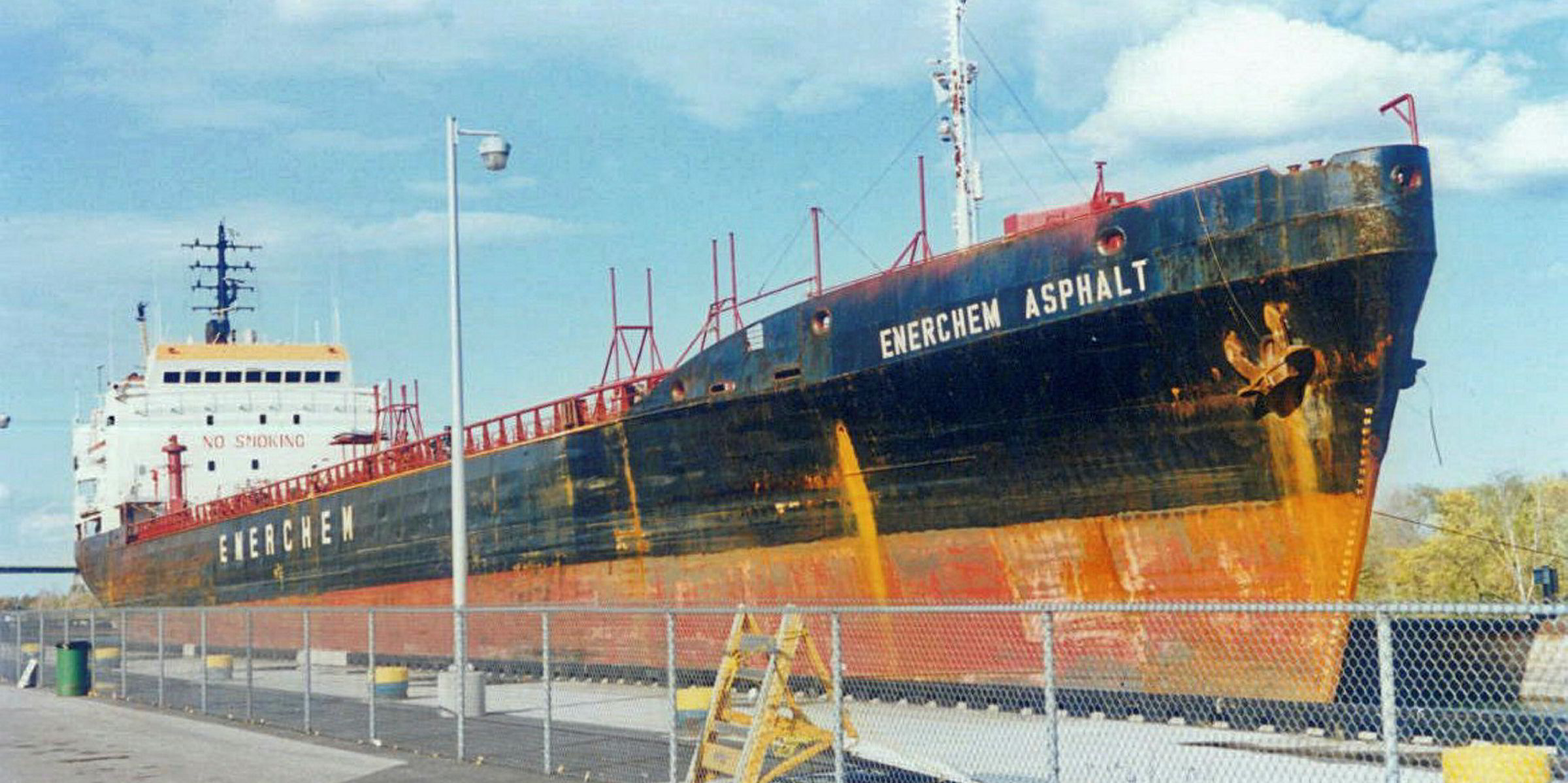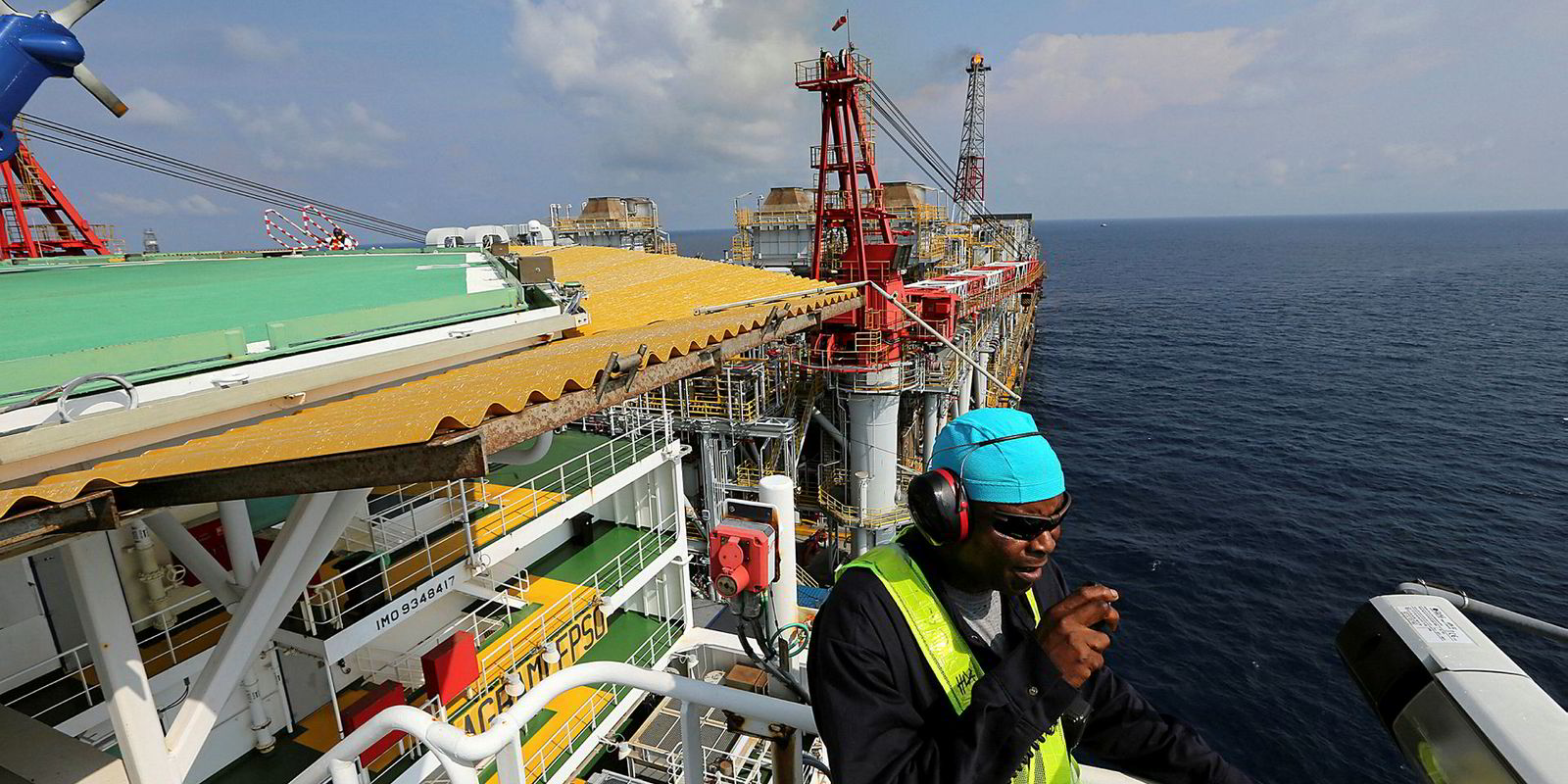Lagos-based Ship & Shore Services has sold one of its four remaining tankers for scrapping in India.
Sources with knowledge of the Nigerian tanker market said the company’s 9,700-dwt African Asphalt (built 1972) is being prepared for a final voyage that will end at the breakers’ beach at Alang.
The asphalt carrier’s AIS transponder is currently broadcasting its name as De Conqueror, although no such change is shown in shipping databases, such as IHS Ships Register or Equasis.
It is unclear how much the ship has been sold for, although at current rates India is paying for tanker tonnage it is estimated to be worth $1.2m as scrap.
However, scrapping sources suspect that Ship & Shore has been paid a substantially lower price as the African Asphalt has been laid up for several years and is out of class.
The vessel was built by Damen Oskarshamnsvarvet in Sweden and it spent close to two decades under European ownership before being sold to EnerChem Transport of Canada, who operated it on the Great Lakes under the name Enerchem Asphalt.
Ship & Shore, via intermediary companies, bought the ship in 1998.
A decade ago, Nigerian shipowners such as Ship & Shore, together with new market entrants, rapidly began acquiring fleets of tankers ahead of opportunities promised by new cabotage regulations and a cheap financing from a government shipping fund.
When those expectations fell severely short of predictions, much of the quickly amassed Nigerian tanker fleet was laid up, with the ships either abandoned at anchor off Lagos, or sold for scrap.
Ship & Shore still has three small product tankers of around 10,000 dwt, and TradeWinds is told that those are among the many still laid up off Lagos.
Scrapping sources said they expect to see the pace of laid-up ships, such as Nigeria’s abandoned tankers, sold for recycling accelerate before the IMO 2020 sulphur ban kicks in on 1 January.
Cash buyers prefer to sail ships to recycling yards under their own power as towing costs eat significantly into the delivery costs both through the expense of hiring a tug and additional insurance premiums for unmanned tows.
Most of the old ships that are destined for scrap have main engines designed to run on heavy fuel oil. The cost of switching to, and burning low sulphur fuel for a single final voyage in the post-2020 sulphur ban operating environment, would be economically prohibitive.





